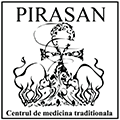Phobias are irrational fears caused by various places, things or situations. The human being affected by this disease feels instinctive panic when confronted with the object or the reason of his or her fear.
There are several types of phobias. The most common ones, phobias that 20% of the Earth’s population suffers from, are those of various animals, heights, people, medical proceedings, elevators, water, plane or ship travels.
The social phobia includes the fear of hugging, of kissing or of humiliation in public places, namely the fear of public. With patients in this category, the fear of doing anything in public is more terrible than the fear of death. This phobia is also manifested by fear of going to restaurants, theaters, cinemas and public restrooms; of expressing feelings before an audience, or of meeting new people. To this category also belongs the fear that they will not be appreciated; or that they may be raised to a level which, although they deserve, they fear they will not be able to raise to it. The last category is also the most severe one, accumulating both of the above-described phobias; in addition, the fear is so great that it turns into panic.
People in this category avoid even leaving their house lest they panic. They think they will have such a severe crisis, that they won’t be able to get out of it and they will die. Their stress is so intense, that it causes tachycardia, chest pain, and lack of oxygen to such an extent that people watching the person who just has a crisis think he or she is in the middle of a myocardial arrest. In crisis, the patient experiences dizziness, vertigo, vomiting, profuse perspiration, paralysis (stunned) and continuous numbness. The respective patient doesn’t realize where he is or is unable to orientate, loses control completely and acts as if he was about to die.
Such people don’t go into closed spaces, into elevators, shops, attics, tunnels and underground spaces. A patient in this category cannot go out of the house without a companion, because he thinks that even rain or other phenomenon could kill him. In extreme cases, the patient doesn’t even leave his room in his own house.
Normally, phobias are triggered when the brain associates an object or a situation with a dangerous or traumatic event. Sometimes the connection is obvious. A man who almost got drowned in his childhood will be afraid of water. However, there are cases of aquaphobics who never wash their face or head, for fear of drowning.
There are inexplicable cases, too, for example there is phobia of butterflies. There are a lot of patients who have this phobia, although they live in cities and they have only seen butterflies in books or on TV. They don’t have a real ground for their fear.
In a patient was found – by means of hypnosis – the reason of her fear of butterflies: when she a three-year old little girl, her mother went crazy and was put in a straightjacket. The patient witnessed this. First, this patient underwent the shock of seeing her own mother being immobilized, and second – while being in that state – a butterfly passed before her eyes and towards her. From that moment on, obviously, the patient has experienced a phobia of butterflies and this fear settled deep in her subconscious mind.
Things take place in a similar way with a child who was barked at or bitten by a dog. The same subconscious mind stores this information, turning it into a phobia.
Children also copy their parents’ behavior. If the parents have a moderate phobia of something, the child will inherit it faithfully and even increase the level of fear.
The phobia may be genetically inherited, too. It may also be induced by over careful parents who teach their child that the world is only made up of dangers. Other causes for a phobia are the excess of sugar, caffeine and alcohol. They destroy the physiological balance; increase the level of stress and cause hypoglycemia, hypothyroidism and mineral deficiency.
Also, allergic reactions or a sudden event may induce panic. The allopathic medicine treats phobias in different ways, but – by all accounts – no complete solution for this phenomenon has been found yet.
As in all the diseases of the human body and mind, the traditional medicine has found solution for this condition, too. The traditional medicine practitioner decides upon the precise treatment and, depending on how deeply affected the patient is, his disease will be cured in a shorter or a longer period of time. The treatment is done by acupuncture, hydroalcoholic extracts of medicinal herbs, a healthy alimentation and a healthy lifestyle, all of which will ameliorate the problem until the complete recovery.


